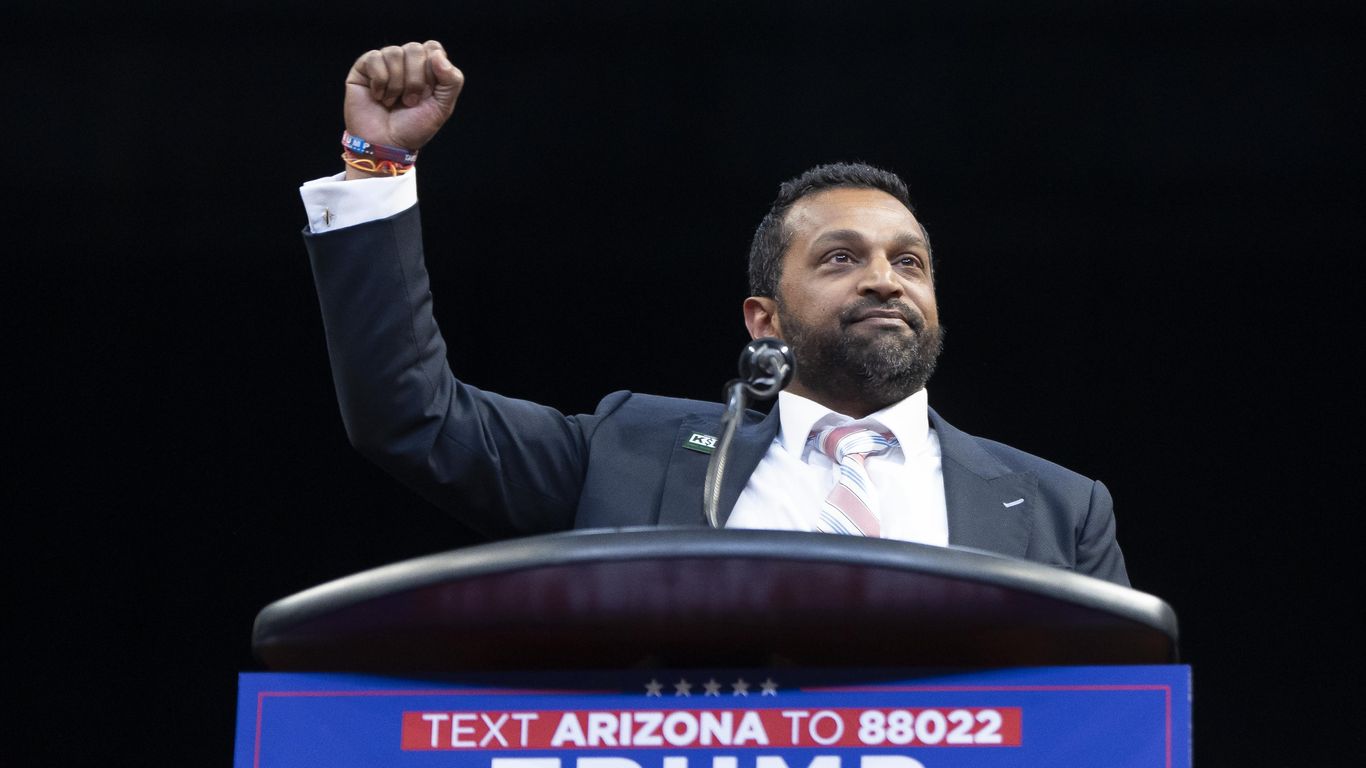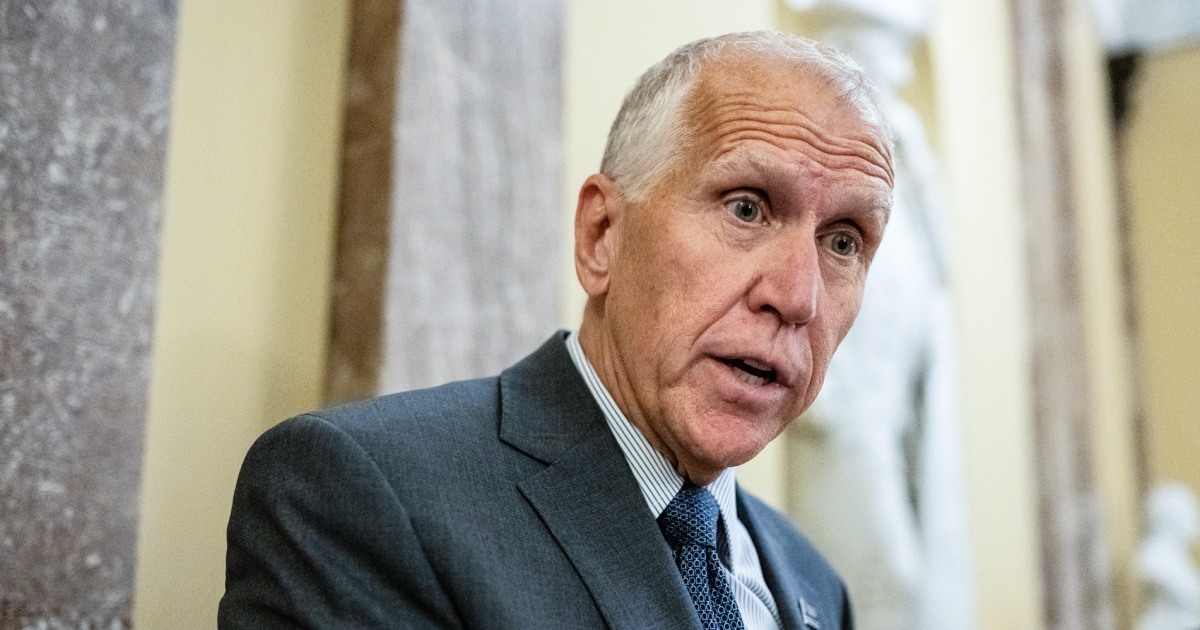House Republicans Close in on Transparency Measure in Epstein Case
Introduction
As House Republicans continue to push for transparency in the investigation of Jeffrey Epstein, Speaker Mike Johnson has stated that they are closing in on a measure to achieve this goal. The controversial case of the convicted sex offender has sparked a rebellion within the GOP, with members eager to distance themselves from any association with Epstein. With the upcoming elections, the pressure is on for Republicans to show their commitment to accountability and justice.
Key Details
The measure being considered by House Republicans would require all documents related to the Epstein case to be made public. This would include any communications between Epstein and high-profile individuals, potentially exposing any involvement or knowledge of his illegal activities. However, the GOP is facing pushback from the Department of Justice, which argues that releasing these documents could jeopardize ongoing investigations.
Impact
The push for transparency in the Epstein case is not only a political issue, but also a moral one. As more information and connections are revealed, the public's trust in the government and justice system is at stake. House Republicans are taking a stand and showing their commitment to upholding the law and serving the American people. This measure could have far-reaching implications, not only for the Epstein case, but for the credibility and integrity of the Republican party as well.
About the People Mentioned
Mike Johnson
Mike Johnson, born January 30, 1972, in Shreveport, Louisiana, is an American lawyer and Republican politician serving as the 56th Speaker of the U.S. House of Representatives since October 25, 2023. He represents Louisiana’s 4th congressional district, covering northwest and western regions of the state, including nearly 760,000 residents across approximately 16 to 20 parishes. Johnson was first elected to Congress in December 2016 by the largest margin of victory in his region in over 50 years and is currently serving his fifth term[1][2][3][4]. Before his tenure in Congress, Johnson earned a Juris Doctor from Louisiana State University’s Paul M. Hebert Law Center in 1998 and worked as an attorney, including with the conservative Christian legal group Alliance Defending Freedom. He also served in the Louisiana House of Representatives from 2015 to 2017. Johnson has been a prominent social conservative, advocating for policies such as nationwide abortion bans and opposing the expansion of medical cannabis. He chaired the Republican Study Committee from 2019 to 2021, the largest conservative caucus in Congress, and served as Vice Chairman of the House Republican Conference and Deputy Whip before becoming Speaker[1][2][4]. Johnson's rise to Speaker was notable for its speed; he attained the position faster than anyone since 1883. His speakership followed the ousting of Kevin McCarthy and has been characterized by efforts to promote conservative principles including limited government, individual freedom, fiscal responsibility, and support for military and veterans. In 2024, Johnson was reelected as Speaker for the 119th Congress. His leadership also focuses on growing the House Republican majority and advancing conservative legislative priorities[1][3][4][5]. He is married to Kelly Johnson, a licensed pastoral counselor and former teacher, and they have five children. The family resides in Bossier Parish, Louisiana[1].
About the Organizations Mentioned
House Republicans
The **House Republicans** refer to the Republican caucus within the United States House of Representatives, currently holding a slim majority in the 119th Congress beginning in 2025. This group functions as the primary organizational body for Republican members in the House, coordinating legislative strategy, party messaging, and leadership elections[4][9]. Historically, the House Republican Conference has been a major force shaping U.S. policy and governance since the party’s founding in the mid-19th century. It provides a platform for collective decision-making and policy development among Republicans in the House. The Speaker of the House, currently Mike Johnson (LA), is the most senior Republican leader and presides over House proceedings, sets the legislative agenda, and serves as the party’s chief spokesperson[2][4]. The Majority Leader (Steve Scalise), Majority Whip (Tom Emmer), and other leadership roles manage daily legislative operations, party discipline, and coordinate votes[4][5]. In terms of **key achievements**, House Republicans have historically influenced major legislation on taxation, deregulation, defense, and judicial appointments. Their agenda in 2025 focuses on reversing policies from the previous administration, emphasizing conservative priorities such as economic growth, national security, and limiting government intervention[7][6]. The current status of the House Republican majority is notably narrow, with just 219 seats out of 435, the smallest margin since 1931. This slim majority demands strong party unity and strategic negotiation to pass legislation and maintain control. Speaker Johnson’s election required every Republican vote except one, illustrating the fragile balance within the caucus[1][3][6]. The party’s leadership includes new and returning figures tasked with navigating this delicate legislative environment while working closely with the executive branch under President Donald Trump’s administration[5][7]. Notable aspects of the House Republicans include their tight internal cohesion, strategic focus on legislative priorities aligned with conservative principles, and their adaptation to a highly divided House, which impacts how they engage
Department of Justice
The **United States Department of Justice (DOJ)** is a federal executive department responsible for enforcing federal laws, ensuring public safety, defending the interests of the United States, and upholding civil rights. Established in 1870 to consolidate federal legal affairs under the Attorney General, the DOJ has grown into a vast organization with over 115,000 employees and a budget exceeding $22 billion[1][4][5]. It operates through more than 40 component organizations, including prominent law enforcement agencies such as the Federal Bureau of Investigation (FBI), Drug Enforcement Administration (DEA), Bureau of Alcohol, Tobacco, Firearms and Explosives (ATF), and the U.S. Marshals Service[1][4][5]. The DOJ’s core mission is to uphold the rule of law, keep the nation safe, protect civil rights, and ensure a fair and impartial administration of justice across federal, state, local, tribal, and international levels[2][5]. It investigates and prosecutes federal crimes, including terrorism, drug trafficking, organized crime, financial fraud, and cybercrime. The FBI, as the DOJ’s principal investigative arm, leads in areas such as counterterrorism, counterintelligence, and cybercrime[6]. Additionally, the DOJ manages federal prisons and provides leadership and resources to state and local law enforcement agencies. Historically, the DOJ’s origins trace back to the Judiciary Act of 1789, which created the Attorney General's office. Its establishment as a separate department in 1870 allowed for greater coordination of federal law enforcement and legal representation of the government[2][4]. Over time, the DOJ has played a critical role in landmark civil rights enforcement, combating organized crime, and adapting to modern challenges such as cyber threats and international criminal cooperation[1][5]. Today, headquartered in Washington, D.C., with field offices nationwide and abroad, the DOJ continues to influence national security and justice policy, balancing traditional law enforcement with evolving technological and societal demands.
GOP
The **GOP**, or **Grand Old Party**, is the widely recognized nickname for the **Republican Party** of the United States, a major conservative political party founded in 1854. It originated from anti-slavery activists opposing the Kansas-Nebraska Act, uniting former Whigs and Free Soilers with a platform centered on halting the expansion of slavery. The party's early historic milestone was the election of Abraham Lincoln in 1860, which precipitated the Civil War; under Lincoln’s leadership, the GOP focused on preserving the Union and abolishing slavery[1][2][3]. Throughout its history, the Republican Party has evolved from its abolitionist roots to champion business interests, industrial growth, and economic policies favoring limited government intervention. In the late 19th and early 20th centuries, it promoted protective tariffs and infrastructure development. The party experienced fluctuating influence, losing ground during the New Deal era but regaining prominence with Dwight D. Eisenhower’s presidency in the 1950s, marked by moderate conservatism[1][2]. Today, the GOP advocates for reduced taxes, conservative social policies, limited government regulation, strong national defense, and states’ rights. It remains one of the two dominant forces in American politics, consistently shaping legislative agendas and national discourse[2]. The party is organized and led nationally by the **Republican National Committee (RNC)**, which manages fundraising, election strategies, and the party platform, coordinating efforts across states and counties under the leadership of a chairman[3][4]. Notably, the acronym "GOP" was popularized in the late 19th century and originally stood for "Grand Old Party," symbolizing the party's legacy in preserving the Union and championing liberty. It is now a common term in political commentary and media[3][5]. In recent years, the GOP has undergone significant membership changes in Congress and leadership adjustments, reflecting its dynamic role in U.S. politics as














